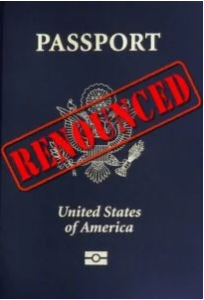
What happens to your gun rights after renouncing your citizenship? Today’s post looks at this issue.
A few weeks ago I received a call from a woman who had renounced her citizenship in 2016. I do not know if she made this decision for political or financial reasons but I do know that she had changed her mind and decided to undergo the naturalization process to try and regain her citizenship.
She was calling me because she wanted to know where she stood in regards to the right to purchase, possess, and transport firearms while she was awaiting the completion of the process.
She was making the assumption that she might not regain her firearm rights until she was once again a citizen.
She simply did not fully understand the significant, lifelong consequences of renouncing her citizenship.
Pursuant to 18 USC 922(g)(7), “[i]t shall be unlawful for any person … who, having been a citizen of the United States, has renounced his citizenship … to ship or transport in interstate or foreign commerce, or possess in or affecting commerce, any firearm or ammunition; or to receive any firearm or ammunition which has been shipped or transported in interstate or foreign commerce.”
The ATF addressed the permanence of this ban in a 1997 regulatory rulemaking entitled Definitions for the Categories of Persons Prohibited From Receiving Firearms (95R-051P).
In the comments to that rule they note that “a person who has renounced his or her citizenship and has subsequently regained citizenship through naturalization would remain under firearms disabilities. Section 922(g)(7) of the Act makes it unlawful for any person who has renounced his citizenship to possess firearms and there is no exception for subsequent naturalization.”
Therefore, she, and anyone else similarly situated, can never regain the gun rights lost as a result of renouncing their citizenship.
ONE IMPORTANT EXCEPTION
The rulemaking noted above deals with cases where a person has renounced their citizenship and ‘subsequently regained citizenship through naturalization’.
However, a person who has renounced their citizenship may take a different approach and administratively appeal the original renouncement under a theory of either involuntariness or lack of intent.
When such an appeal is successful, the person concerned “shall be considered not to have lost U.S. nationality as of the time the [potentially] expatriating act was committed, and the Certificate of Loss of Nationality shall be vacated.” 22 C.F.R. 50.51 (c); 7 FAM 1238.
Since this method of regaining citizenship effectively means that the person never lost their citizenship in the first place and naturalization is not involved, the person does regain their firearm rights (or more accurately, will be considered to have not lost them in the first place).
Disclaimer: This information is presented for educational purposes only and does not give rise to an attorney-client relationship. Additionally, I am licensed to practice law in the Commonwealth of Virginia and this information may not be applicable for other states. If you have further questions about this topic or any other in my areas of practice, please feel free to contact me for a free consultation.





